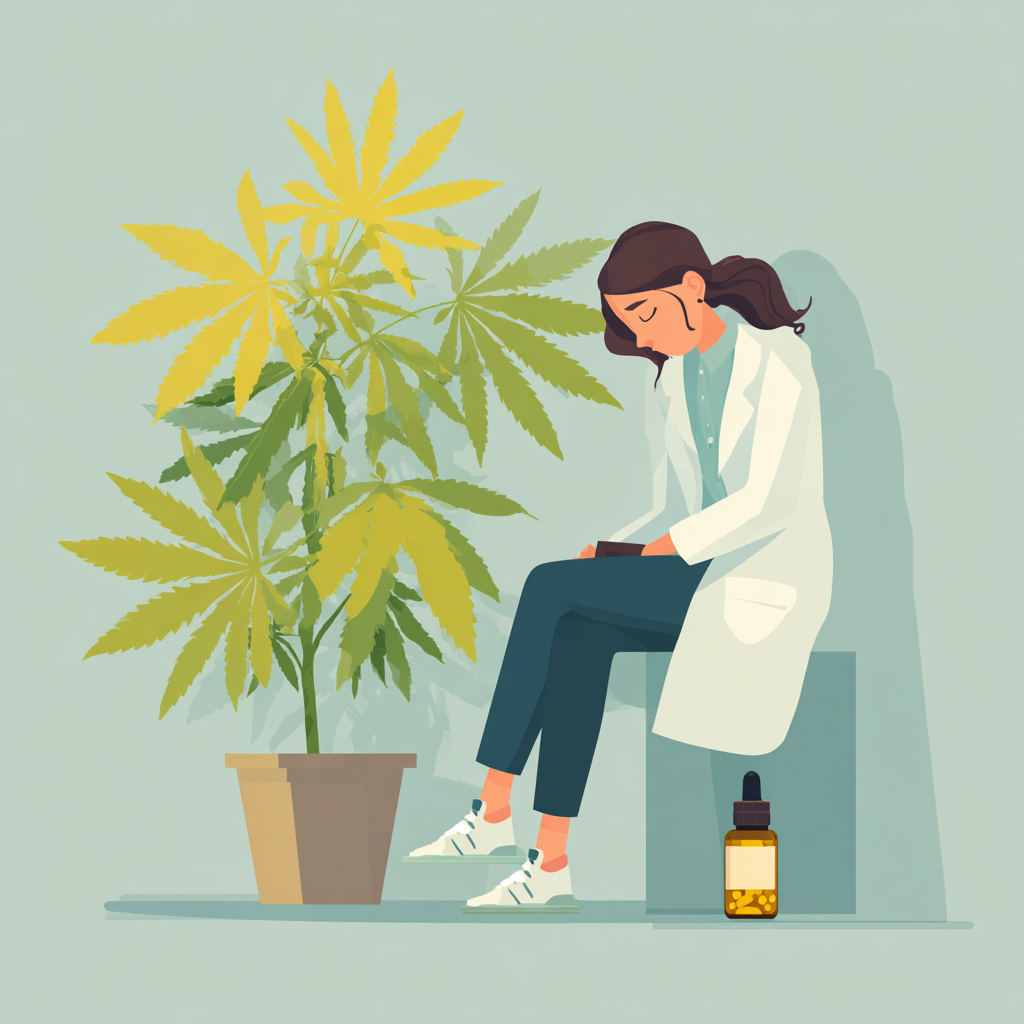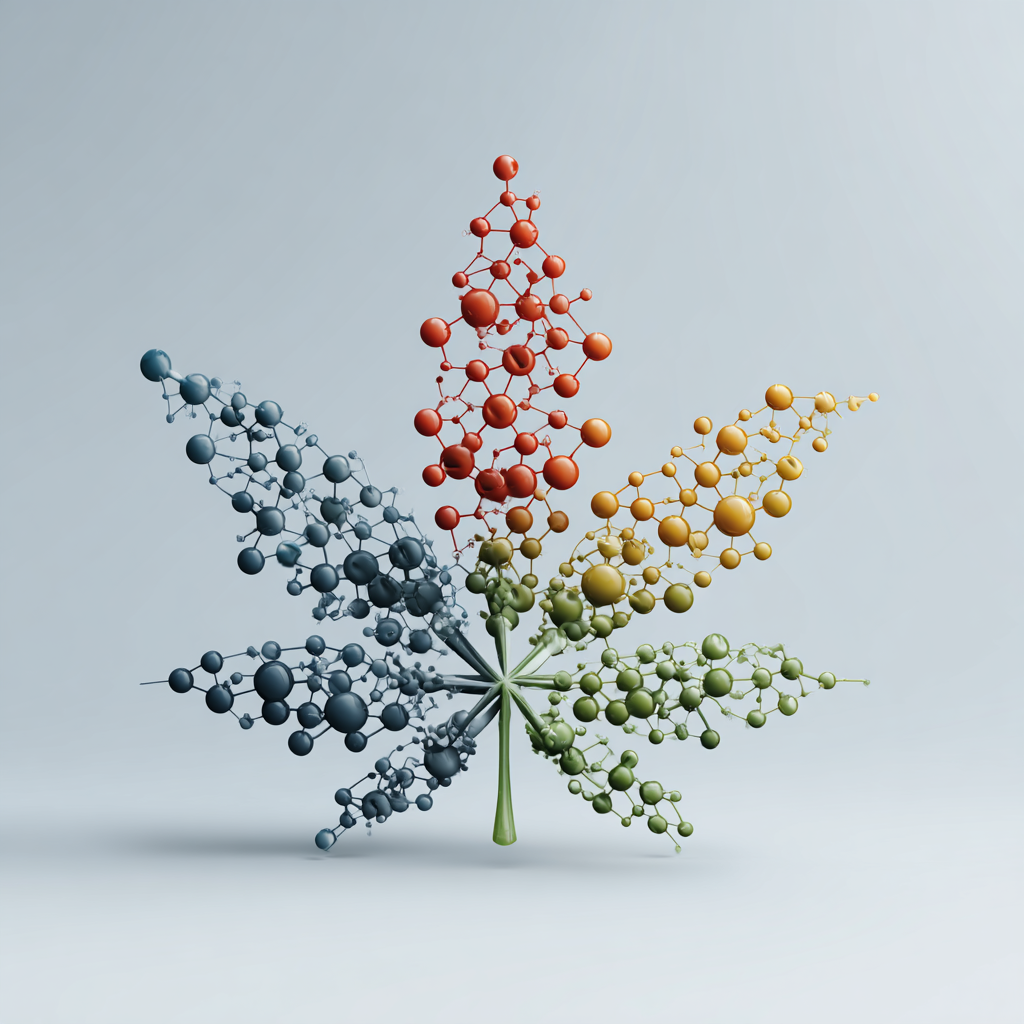Cannabis Relief: Fibromyalgia Breakthrough Shows Promise

Italian Researchers found fibromyalgia patients with gastrointestinal conditions, with marked decrease in symptoms after treatment with plant-based cannabis drugs containing 19 percent THC and 1 percent CBD.
Scientists, in a study presented in Clinical and Experimental Rheumatology, evaluated 46 fibromyalgia patients during registration, three, and six months.
Researchers revealed treatment with cannabis reduced patients’ abdominal as well as epigastric pains considerably, reduced signs of gastric burning as well as bloat, less severe as well as frequent, with an occurrence in complete remission in eight percent of patients from their syndrome.
This pilot study is among mounting data showing cannabis therapy potentially provides therapeutic value in difficult chronic pain conditions such as fibromyalgia.
The conclusions in research are due in part to the discovery that cannabinoids are promising for a therapeutic solution for fibromyalgia patients, also for gastrointestinal problems with fibromyalgia.
The research utilized a real-world observation design with patients being followed for six months as a means of evaluating gastrointestinal symptom resolution.
The mixture of THC/CBD also appeared to work synergistically in reducing the gastrointestinal pain and inflammation.
Further research is needed in order for there to be a complete understanding of the treatment, yet for the time being, this research is a big step towards understanding how cannabis can help fibromyalgia’s complex constellation of symptoms, particularly for patients for whom standard medication provided no help.
Source: norml.org
Legal Cannabis States See $60K Higher Home Values

A house brings in an average of $60,327 in recreational cannabis legal states versus recreational cannabis prohibited states during the period spanning 2009 until 2024, a new survey commissioned for Clever Offers revealed.
Residential property in recreational cannabis states increased in value by $222,958 in the last 15 years, while non-recreational cannabis states increased in value in non-recreational cannabis states by $162,631.
Seven out of the top ten states for home value appreciation since the year 2009 also have legal cannabis, including California ($492,520 appreciation), Hawaii ($446,247), and Washington ($342,414).
On the other side, nine out of every ten lowest appreciating home value states in the country haven’t legalized recreational cannabis, with Illinois being an exception.
The pattern extends over into the legal marijuana states, as well, where homes are now selling for about an 18% higher value than in illegal states.
Based on studies, legalized cannabis offers an economic benefit in tax income, labor, business creation, as well as positive spillovers for surrounding communities and residential property.
This data debunks longstanding worries legalizing cannabis would depress property value, uncovering instead the converse impact in a respectable percentage of marketplaces and times.
Source: prnewswire.com
8 in 10 Users Choose Cannabis Over Pills

An astounding eight in 10 users of cannabis confessed looking towards cannabis, in part or in whole, for replacing normal prescription drugs, a new survey conducted by NuggMD discovered.
There were a total of 485 participants, where 79.6 percent responded in affirmation when asked if they replaced drugs with cannabis, while 20.4 percent responded that they do not.
This implies an estimate of 40 million American regular cannabis users in any form instead of prescription drugs, leading to pharmaceutical companies losing billions in revenue.
In particular, a clear majority of survey respondents were non-cardholders, suggesting the substitution impact runs well beyond the registered membership. Survey results are consistent with hundreds, possibly even thousands, of studies confirming cannabis diminishes prescription medication, especially opioid, usage.
Several researches revealed that legalizing medical cannabis is associated with lower opioid prescription, as well as overdose deaths.
A research discovered chronic pain patients receiving pharmaceutical marijuana for a period greater than a month experienced substantial declines in opioid scripts, even though a study discovers cannabis considerably more successful than medications prescribed for chronic pain treatment.
The substitution hypothesis looks strongest in analgesia, in which patients are opting for cannabis in opposition to potentially toxic prescribed medications in the opioid pharmacologic class, a mark of shifting views toward analgesic control among Americans.
Source: marijuanamoment.net
Czech Republic Set to Join European Cannabis Club in 2026

In May 2025, the Chamber of Deputies within the Czech Republic’s Parliament voted to pass a bill legalizing adult-use cannabis, a move also voted for in the country’s Senate with an implementation timeline of January, 2026.
The bill’s key provisions would give a right to over-21 adults to grow three plants in private in residential premises as well as keep an overall total of 100 grams dried cannabis flower.
This historical vote makes the Czech Republic the latest European country to accept cannabis reform, following Malta, Luxembourg, and Germany among EU countries in passing domestic adult-use cannabis legalisation initiatives.
The radical policy shift for the Czechs in relation to drugs has been overdue for a long time, with the nation already being extremely tolerant towards recreational cannabis.
It is a significant move towards legal regulation over criminalization, licensing legal adults for cultivation and possession of cannabis for personal reasons with limited restrictions.
Czechia is next after Malta, Luxembourg, and Germany in being among European countries with an approved national adult-use cannabis legalisation proposal. Uruguay, Canada, and South Africa also approved national recreational cannabis legalisations propositions.
The implementation schedule gives the government nearly six months to roll out regulatory mechanisms in addition to informing the people regarding new legislation.
This incremental approach signals increasing European recognition that a ban on cannabis is a policy failure and regulated markets are the lowest risk strategy for public health and justice.
Source: internationalcbc.com
Colombia’s Cannabis Biodiversity Goldmine

Researchers in Colombia found an extraordinary diversity in the phytochemistry for cultivated cannabis in Colombia, finding four unique chemotypes based on the profiles for cannabinoids, as well as significant levels of generally uncommon terpenes.
A first-of-a-kind, in-depth analysis, printed in Phytochemical Analysis, investigated 156 Cannabis sativa plants cultivated in different ecological areas throughout Colombia, assaying ten cannabinoids and a total of 23 terpenes with highly advanced chromatography methods.
Colombia’s status as a hub for biodiversity on a global level would also appear to hold for cannabis production, with Colombia’s diversified climate enjoying huge production possibilities for medicinal as well as recreational cannabis.
The study found that the unique environment in Colombia provides an opportunity for cannabis strains there to possess terpene profiles rarely seen elsewhere, giving the country a prime position as a top producer in the diversification of global cannabis production.
The various climates in Colombia present huge cultivation possibilities, thus Colombia being a top-producing country in locally grown as well as export medicinal, recreational cannabis.
This study emphasizes the environmental conditions’ impact in the course of evolution in cannabis chemistry as well as Colombia’s potential in dominating South American cannabis market.
There are four recognized chemotypes possible, each offering considerable insight for cultivation, pharmacy, as well as commercial production.
Unique terpenes offer the probability for new treatments in addition to current uses with specialty product profiles, making Colombia a keystone nation for research for the entire cannabis plant.


